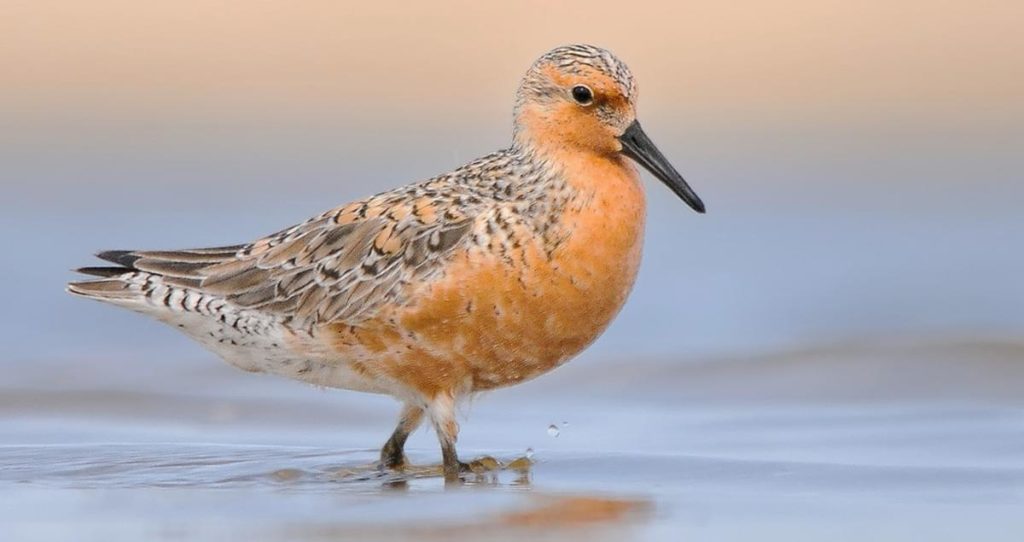Huh, I Wonder if Turning Every Species on the Planet into an Industrialized Product Has Any Downside?

The decline of the red knot is both predictable and fixable. If only the pharmaceutical industry gave a damn about it.
The number of red knots visiting the Delaware Bay beaches during this spring’s northbound migration unexpectedly dropped to its lowest since tallies began almost 40 years ago, deepening concern about the shorebird’s survival and dealing a sharp setback to a quarter-century of efforts to save it.
Conservationists found fewer than 7,000 of the bird’s rufasubspecies during extensive counts on land, air and water on the New Jersey and Delaware sides of the bay during May. The number is about a third of that found in 2020; less than a quarter of the levels in the previous two years; and the lowest since the early 1980s when the population was about 90,000.
Numbers were already well below the level that would ensure the bird’s survival. An earlier decline had been halted by years of conservation efforts, including a ban by New Jersey on the harvesting of horseshoe crabs, whose eggs provide essential food for the birds on their long-distance migrations.
The latest drop makes the rufa subspecies — which has been federally listed as threatened since 2014 — even more vulnerable to external shocks, such as bad weather in its Arctic breeding grounds, and pushes it closer to extinction, naturalists say.
She called for an immediate ban on the harvesting of horseshoe crabs for bait, an industry that is still active in Delaware, Maryland and Virginia, and which is subject to quotas by the Atlantic States Marine Fisheries Commission. Although the regulator does not permit the harvesting of female crabs, naturalists say the rule is not strictly enforced, resulting in the loss of some of the egg-laying animals and a consequent reduction in the birds’ food supply.
The new decline also amplified naturalists’ calls for the pharmaceutical industry to stop using LAL, an extract from the crabs’ blood that is deployed to detect bacteria in vaccines, drugs and medical equipment. A synthetic alternative, rFC, is available, and is used by at least one pharmaceutical company, but the industry as a whole has been slow to adopt the new technique, resulting in continued demand for horseshoe crabs in the bay.
So….there’s a synthetic option readily available, but the lazy pharmaceutical industry still prefers the mass harvesting of crabs that has who knows how many cascading effects in the entire Chesapeake ecosystem. It’s hard to summarize the decline of the planet’s ecology in the face of capitalism better than this issue.


